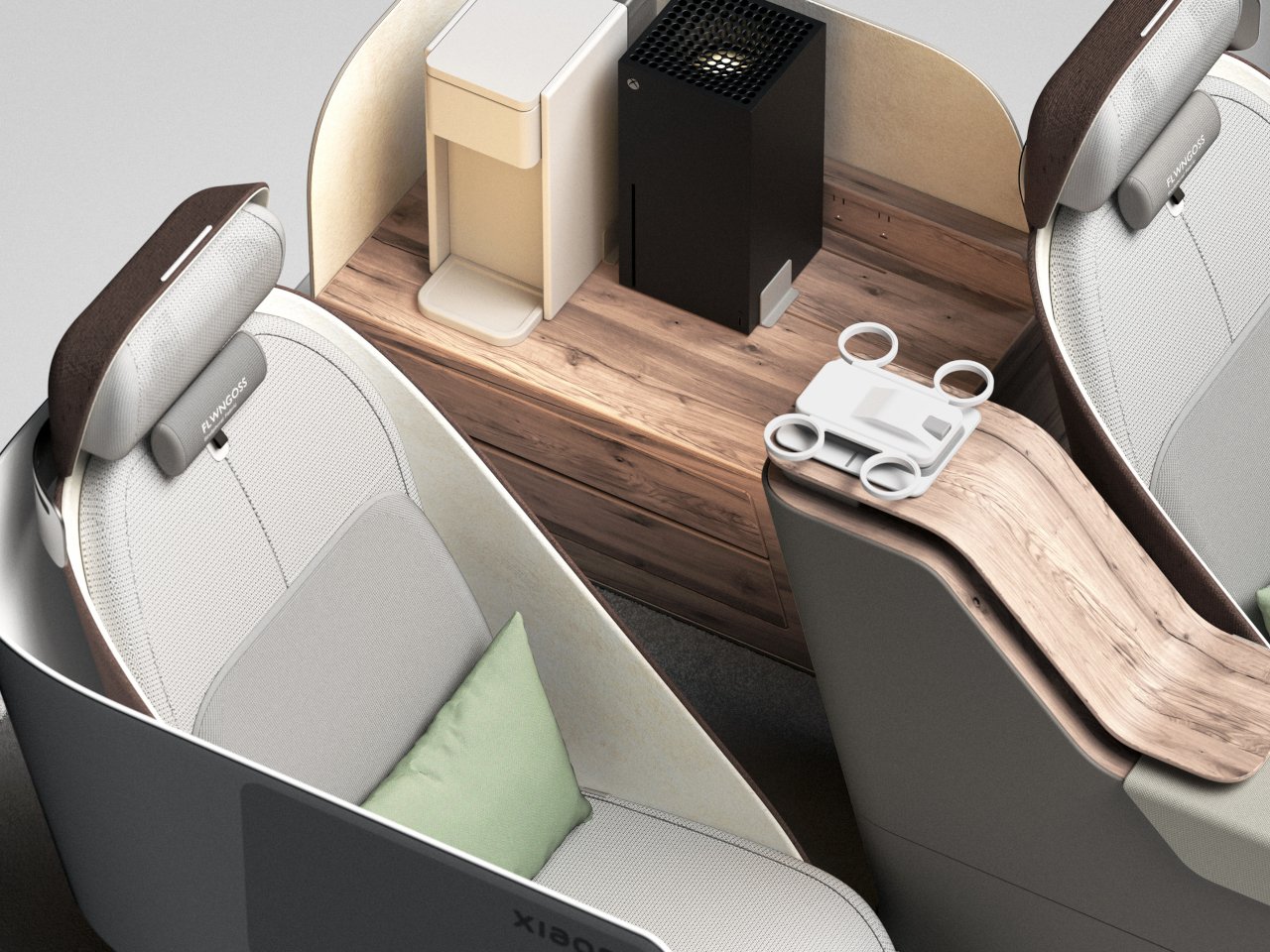Cars have evolved far beyond simple transportation, becoming mobile offices, entertainment centers, and quiet retreats from the chaos of daily life. Yet most automotive interiors remain frustratingly static, designed around assumptions about how everyone should use their vehicle rather than adapting to individual needs and preferences. Fengrui Wang’s Xiaomi Flowing Oasis concept, developed as a thesis project at TU Delft, takes a radically different approach by reimagining the car interior as a modular, user-customizable sanctuary.
This speculative design draws inspiration from Xiaomi’s IoT ecosystem and “Warm-Tech” philosophy, though it remains an independent concept rather than an official company project. The Flowing Oasis envisions a future where car interiors function more like customizable living spaces, with modular bases and adjustable connectors that accommodate products of various sizes. Users become active participants in shaping their environment through what Wang calls “co-idea creation,” where the cabin adapts to personal habits, moods, and daily routines rather than forcing everyone into the same predetermined layout.
Designer: Fengrui Wang
The modular system includes small, medium, and large bases with flexible connectors, allowing users to install everything from entertainment modules to wellness accessories depending on their current needs. Want a meditation corner for your morning commute? Swap in some calming elements. Need a mobile workspace for video calls? Reconfigure the layout with productivity tools. The concept treats the car as a flowing, adaptable environment that changes as your life changes, rather than a fixed space you simply occupy.
What makes this concept particularly compelling is how it leverages the potential of IoT connectivity to create seamless integration between your car and the rest of your connected life. Drawing from Xiaomi’s ecosystem approach, the Flowing Oasis would theoretically sync with your smart home, wearables, and mobile devices to anticipate your needs and preferences. The “Warm-Tech” philosophy ensures this technology feels approachable and human rather than cold or overwhelming, focusing on emotional comfort alongside functional utility.
The business implications extend beyond just selling cars to creating ongoing relationships through modular products and services. Instead of buying a vehicle with fixed features that become outdated, users could continuously evolve their mobile sanctuary with new modules, accessories, and experiences. This approach could differentiate future electric vehicles in an increasingly crowded market by focusing on adaptability and personal connection rather than just performance specifications or autonomous driving capabilities.
Wang’s concept succeeds because it addresses a fundamental disconnect between how we live and how automotive interiors are designed. While our homes, workspaces, and digital environments become increasingly personalized and adaptive, most cars remain stubbornly uniform. The Flowing Oasis suggests a future where our vehicles become true extensions of our personal spaces, capable of evolving with our needs and providing genuine emotional comfort during the transitions between destinations.
Concepts like this matter because they challenge industry assumptions and push designers to think beyond current limitations. Even if the Flowing Oasis never becomes reality, it plants seeds for more human-centered, adaptable automotive design.
The post Flowing Oasis Car Cabin Concept Reimagines the Car as a Modular Sanctuary first appeared on Yanko Design.

